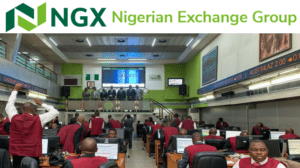GTCO to reduce creating new loans in 2023
The Group’s Chief Executive Officer, Mr. Segun Agbaje, has said at the GTCO’s investors and Analyst conference which held on April 19, 2024 that Nigeria is still the primary source of loan growth, but the Group is cautious about loan growth in Nigeria due to the challenges in the environment.
The loan growth is linked to deposits, and the Group grew its deposit by 12 per cent and its loan book by 5 per cent in Nigeria based on what they saw in Nigeria. The Group is not going to change its approach in Ghana.
The Group adopted a cautious approach to loan growth due to macroeconomic headwinds that increased credit risk across all jurisdictions of operation. Other Tier-1 banks in the same environment had remarkable growth in their loan books in the same period (2022FY), with Access Holdings, UBA, and Zenith Bank growing their loan books by 24.98 per cent, 21.36 per cent and 19.61 per cent, respectively.
After the release of its audited financial results for the year ending December 31. The results showed that the Group’s total loans grew to N1.886 trillion in 2022, representing about 5 per cent YoY growth, which is below its 2022 guidance.
GTCO grew its loans book by 4.61 per cent YoY to N1.886 trillion in 2022; missing its 2022 loan growth guidance by 10 per cent
The Group also missed its 2022FY deposits growth (+25 per cent) and loan to deposits ratio (+50 per cent) guidance.
On the back of the foregoing and coupled with higher growth in interest expense and impairment losses, the Group’s net interest margin printed at 6.68 per cent; about 17 per cent below the 2022FY net interest margin projection.
In terms of loan growth, Nigeria is still where the loan growth is still going to come from. We are always very careful even about loan growth in Nigeria because we still believe there are challenges in the environment.
“The loan growth is what we do in terms of deposits and one pulls the other. There is no point in us going with 25 per cent deposit growth if all we are going to do is packaged it into CRR or special bills. So we grew the deposit by 12% and grew the loan book by 5 per cent in Nigeria because that is what we saw in Nigeria. In terms of Ghana, we are not going to change… We are not going to be long.”
In addition to the loan growth strategy, GTCO also faced margin compression due to the low yield environment seen in 2022, which could not outpace the cost of funds. This was disclosed during the Group’s 2022 full-year investor presentation.
“The Group grew its Investment Securities Portfolio by 9.5 per cent (N124.2 billion) to N1.435 trillion from N1.311 trillion during the same period but this did not translate to the desired revenue, owing to the sub-optimal yield environment that pervaded Nigeria, Gambia, Kenya and Cote D’Ivoire, e.g.
GTBank Ltd continued to suffer from huge holdings of the CBN’s Special Bills – N561.5 billion, constituting 56.0 per cent of its Fixed Income Securities portfolio which it held at an average rate of 0.48 per cent vs 1.24 per cent cost of Funds as at FY-2022.”
The Group is optimistic that 2023 will present a better net interest margin than 2022, especially in Nigeria due to the expected higher fixed-income yield environment and the Cash Reserve Requirement (CRR).
The Group also confirmed that its funding base is strong, increasing by 15.8 per cent to N6.019 trillion in FY2022. The funding base comprises customer deposits (77 per cent), equity (15 per cent), customer escrow balances (6 per cent), and other borrowed funds (2 per cent from 3 per cent in FY-2021).
While shareholder return, quality service delivery to customers, and the firm’s value are essential, the Group posted a Pre-tax Return on Average Assets of 3.6 per cent and a Pre-tax Return on Average Equity of 23.6 per cent despite the muted net interest margin/loan growth and challenges in the operating environment, which had negative implications for individuals, households, and businesses.
GTCO is a dividend-paying company that has paid out N422.34 billion in dividends over the past five years, representing a CAGR of 2.80 per cent a year. Following its reasonable performance, the bank has proposed a final dividend of N2.80 per share to be paid on May 11, 2023, to shareholders whose names appear on the Register of Members as of May 1, 2023.
The Group’s share price has gained 8.70 per cent this year YtD as of the last trading day in April 2023, in contrast to last year, which saw the share price lose 11.54 per cent of its value as of the close of trading on December 31, 2022. It appears that these positive developments are beginning to be priced in.




